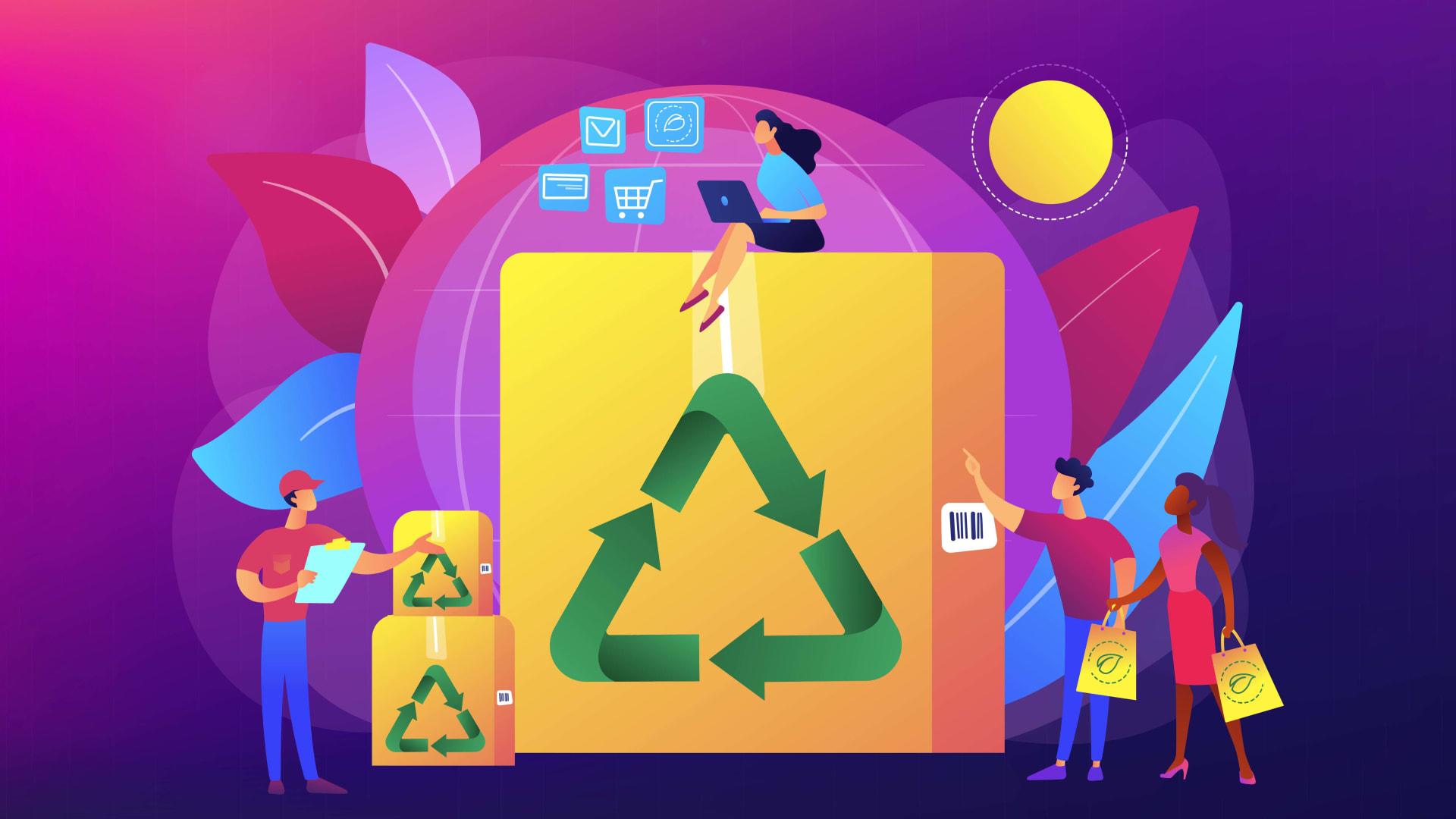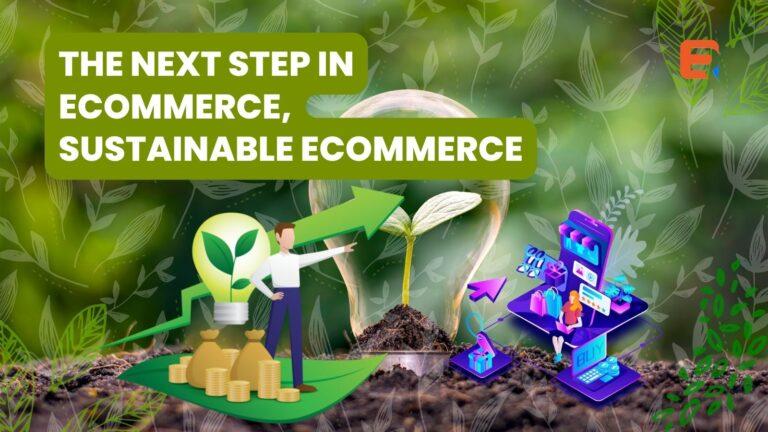To be successful, eCommerce businesses need to offer something unique or compelling over their brick-and-mortar competitors. One of the most sustainable ways to do this is by offering consumers an eco-friendly approach to shopping online.
It’s no secret that the world has become more environmentally conscious recently, increasing sustainable products and practices—from reusable water bottles to organic foods to solar panels. But how does this affect eCommerce?
The truth is, it can greatly impact how customers shop online, which we’ll explore below. In particular, we’ll focus on why sustainable eCommerce might be the next Step in the evolution of our industry and how online retailers are already taking advantage of this.
What Is Sustainability

According to most definitions, sustainability is a way of life in which the present needs are met without compromising future generations’ ability to meet their needs. That way, we can live within our finite economic and environmental resources while maintaining social equity.
It’s not just about cutting back on energy usage or recycling paper; it’s also about how the company treats its employees, what they pay, and how they communicate with them. It’s also important to think about these things when choosing your products and services.
For example, buying an organic cotton t-shirt made by paid workers would be more sustainable than buying a plastic water bottle made by people who aren’t treated well.
How Does Sustainable eCommerce Work?
Sustainable eCommerce is a new way of doing business that considers our actions’ environmental and social impact. It’s about ensuring that our products and services are eco-friendly and taking steps to reduce our carbon footprint.
- This can be done through several different means, such as using recycled materials, renewable energy, or investing in green infrastructure.
- Sustainable eCommerce is about more than just being eco-friendly; it’s also about social responsibility.
- Every person who shops with us has the opportunity to help make this world a better place by supporting businesses that share their values.
- Sustainable eCommerce is all about giving back to communities near and far by raising awareness for non-profit organizations through campaigns, donating 1 percent of sales for philanthropic causes, and donating goods locally.
Sustainable Products May Be More Costly Upfront.
While buying a sustainable product may be more expensive initially, it is important to consider the long-term benefits. Sustainable products often last longer, which means you save money in the long run.
Besides being better for the environment, sustainable products are often also healthier and more durable. When buying household items, opt for green cleaning products or recycling bins. The list goes on and on! Consider these five quick tips when making your purchases:
- Choose non-toxic beauty products
- Reduce food waste by composting
- Buy reusable straws
- Buy recyclable items
- Choose renewable energy.
Remember: Sustainable goods also contribute to a greener lifestyle, reducing harmful effects on our planet’s ecosystems.
Rewards That Outweigh the Price Tags

The next Step in eCommerce is making it sustainable. And that doesn’t just mean being eco-friendly. It means creating a system where the rewards for participating outweigh the price tags. In the past 10 years, businesses have increasingly sought to operate in ways that can be counted as net-positive.
That is, they not only seek not to harm, but they also actively work to make things better. And it’s not just feel-good philanthropy — research shows that these businesses are more successful. For example, a study by the University of Michigan found that companies with explicit Sustainability or social purpose performed three times as well financially as other firms over five years.
Companies such as Ben & Jerry’s ice cream and Patagonia outdoor clothing have led the charge in moving their operations to be more sustainable and socially responsible while still delivering great products at fair prices.
These companies have succeeded without sacrificing ethics, quality, or performance. For example, since 2007, Ben & Jerry’s has donated 1% of its annual global sales to charity; this equates to $2 million annually.
How Does Sustainability Equate to Profitability?
To answer this question, we must first understand what sustainability is. Sustainability can be defined as the ability of present generations to meet their own needs without compromising the ability of future generations to do the same—
In other words, it is about living within our means so future generations can live within theirs. So, how does Sustainability equate to profitability? When a company practices responsible business practices and maintains a healthy environment for employees and customers, they are making money and doing good for the world.
The numbers show that In 2016, 8.1 million people were employed by businesses with environmentally-friendly policies (more than three times the number of people employed by coal mining companies).
It’s important to note that these jobs didn’t just appear out of nowhere; they came from companies that made environmentally friendly changes. Furthermore, with more jobs comes higher pay and a stronger economy.
For example, an electrician will make more money on average than a coal miner because the demand for electricians has grown exponentially over the past few years. As of 2022, an electrician earns an average salary of $55,370 annually, while coal miners earn an average salary of $42,880 annually. More job opportunities come more choices, creating greater freedom and prosperity for everyone.
Net-Positive Businesses Are More Successful

The term net-positive can refer to businesses that positively impact the environment and society—that is, they not only do not harm but actively improve things. And it turns out that being net-positive is good for business, too.
A study by B Lab found that net-positive companies are more likely to be financially successful and to create jobs than their counterparts. As part of their research, the study looked at 143 B Corps (for-profit companies certified as meeting rigorous social and environmental performance) from various industries.
Companies with a significant or sizable net positive impact outperformed non-B Corps across every key financial metric: EBITDA margin, return on assets, return on equity, price/earnings ratio, and total shareholder return. So it’s not just about Sustainability; it’s about profit. The future of our economy depends on us getting this right.




